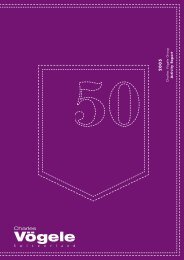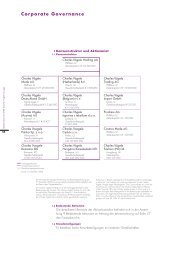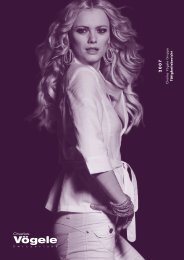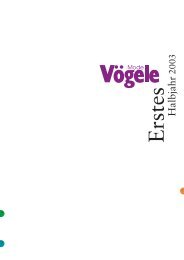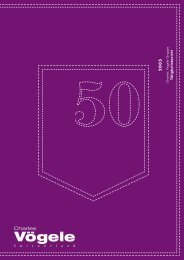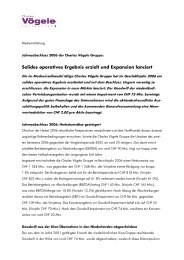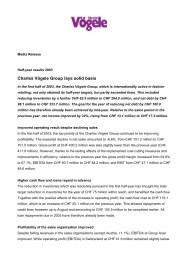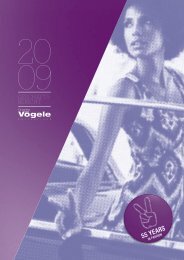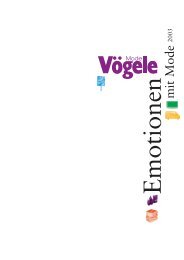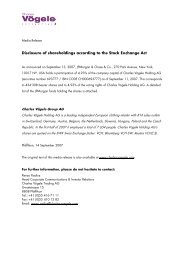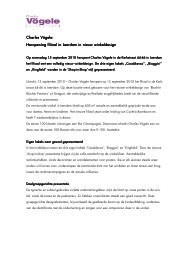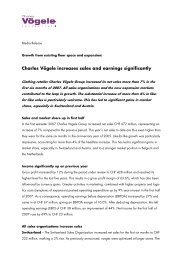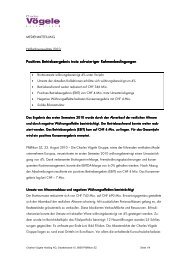Annual REPORT
Annual REPORT
Annual REPORT
You also want an ePaper? Increase the reach of your titles
YUMPU automatically turns print PDFs into web optimized ePapers that Google loves.
Health service in Kamrangir Char, Dhaka<br />
This health project improves access to vital basic<br />
medical services in the slums of Dhaka. The<br />
aim is to provide as many slumdwellers as possi-<br />
ble with access to a doctor and medicines in<br />
return for a small payment where feasible. With<br />
better healthcare, the local people, including<br />
textiles industry workers, stay healthier and so<br />
can earn a living. Since the project began in<br />
autumn 2005, health awareness in the slums of<br />
Kamrangir Char has improved. Training ses-<br />
sions have been held on health promotion and hygiene,<br />
as well as campaigns about seasonal<br />
diseases – how they affect people and how they<br />
can be prevented.<br />
Information has also been distributed to increase<br />
health awareness among slumdwellers. Partic-<br />
ular emphasis is put on healthcare for mothers and<br />
children. Mothers and pregnant women are given<br />
specific advice on hygiene. Demand for all the training<br />
and information was very high in 2009. In May<br />
2009, additional health promotion campaigns were<br />
run in the slums. Project staff visited schools<br />
and religious institutions, as well as carrying out a<br />
door-to-door campaign.<br />
Charles Vögele has supported the project since<br />
September 2005, and it has now been extended<br />
until 31 January 2011. In 2009, 20 000 people made<br />
use of the services offered.<br />
Occupational training in the slums of Rayer<br />
Bazaar, Dhaka<br />
This project, based in a training centre with its<br />
own shop, gives slum dwellers practical training in<br />
sewing, cutting and embroidery. Disadvantaged<br />
people learn valuable professional skills that will improve<br />
their lives for the long term. Once they have<br />
finished the training, they can start to earn their own<br />
living. More than 80% of those who have completed<br />
the course now have a regular income. Even while<br />
training, participants can earn money from priv-<br />
ate work in order to save up for a sewing machine.<br />
When they have finished they can apply to work<br />
at Charles Vögele’s supplier companies.<br />
25<br />
There are two six-month training phases every<br />
year. The curriculum and the number and con-<br />
tent of lessons are regularly reviewed and adjusted.<br />
Thanks to the introduction of new disciplines –<br />
printing and batik techniques – the number of participants<br />
and the capacity has been increased.<br />
Between 1. September 2005 and 31. December 2009,<br />
780 peo-ple were trained on various courses, and<br />
now either work in the project’s own workshop, have<br />
found a job elsewhere, or have set up their own<br />
business. The project, which Charles Vögele con-<br />
tinues to support, has been extended until<br />
31 August 2011.<br />
Key Facts<br />
Chairman’s Message<br />
CEO’s Report<br />
Group Report<br />
Regional Report<br />
Corporate Social Responsibility<br />
Corporate Governance<br />
Financial Report



